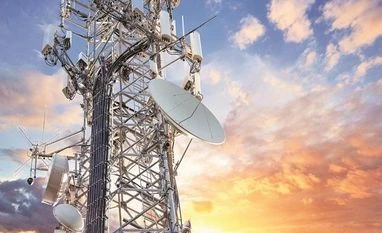The COAI said on Wednesday that it has sought a reformative tax regime for the sector. This is as part of its Budget recommendations to the finance ministry. The three private telecom service providers (TSPs) — Reliance Jio, Bharti Airtel, and Vodafone Idea — are members of the COAI.
The government imposes universal access levy on TSPs to the tune of 5 per cent of their annual adjusted gross revenues (AGRs).
This goes into the telecom department’s Universal Service Obligation Fund (USOF), which had an unused surplus of Rs 64,774 crore as of October 30, 2022, official data shows.
The USOF is used to boost mobile and broadband connectivity in rural and remote areas, especially those affected by Left-wing extremism and in the Northeast.
Another key Budget demand of COAI is reduction of licence fees from the current 3 per cent to 1 per cent.
The industry body has also argued against the current definition of gross revenue (GR). The term telecom activity is currently not defined but may include revenue from activities believed to be incidental to telecom activity.
“It is requested that the definition of GR should make it abundantly clear that the revenue from activities, for which no licence is required, should not be a part of GR,” COAI said in the recommendations.
Customs, GST demands
COAI also called for lowering the Customs duty on telecom equipment. It said the cost effectiveness of telcos is taking a hit at a time of major investments into 5G.
Around 85 per cent of telecom equipment in India is imported due to lack of domestic availability.
Basic Customs duty of 20 per cent is levied on import of most telecom equipment like optical transport equipment and networks, IP Radios and LTE products, among others.
COAI has also requested better classification of the various terminologies being used in tariff/exemption notifications.
It argued that ineffective classification leads to field officers not allowing import of equipment. The resultant interpretational issues with the Customs department have led to litigation, it said.
Case in point, the Centre had issued clarification to the field units saying that no duty will be applicable on cable laying vessels beyond the territorial waters of India. “However, payment of duty on vessels and cable, beyond territorial waters and up to exclusive economic zones are still being insisted on by the Customs units,” COAI said.
On goods and services tax (GST) issues, COAI has requested a centralised registration process and assessment, along with an audit procedure for large taxpayer units with turnover of over Rs 500 crore.
“This would ensure ease of doing business with no corresponding loss of revenue to the government,” it said.
It also called for past litigation on GST and excise be settled in a fast-track mode and another amnesty scheme be formulated. This could settle the erstwhile litigations pertaining to excise and service tax.
COAI has called for exempting the levy of GST on spectrum acquisition charges, licence fees and spectrum usage charges.
It has also asked the government to refund the accumulation of input tax credit, currently estimated at over Rs 32,000 crore. As an alternative, this amount could be allowed to be adjusted against statutory dues or be used as collateral against loans, the industry body said.
Direct tax
COAI has requested to introduce a special regime for the telecom operators under Section 72 of the Income Tax Act, 1961, wherein the business losses can be carried forward and set-off till sixteen (16) assessment years from the existing 8 years.
"Lapse of business losses post eight years would be detrimental to the already distressed telecom Industry as the income during the recovery phase will be subject to tax outflows and other committed pay-outs such as AGR-related ones," it said.
The body is particularly against one of the conditions to avail the carry forward of losses under Section 72A of the Act, which mandates the amalgamated company should hold 75 per cent of book value of fixed assets of the amalgamating company for a period of five years.
In the recommendations, the industry has urged the government to bring down the threshold to 50 per cent, to be held for a maximum period of 2-3 years.
To read the full story, Subscribe Now at just Rs 249 a month
Already a subscriber? Log in
Subscribe To BS Premium
₹249
Renews automatically
₹1699₹1999
Opt for auto renewal and save Rs. 300 Renews automatically
₹1999
What you get on BS Premium?
-
Unlock 30+ premium stories daily hand-picked by our editors, across devices on browser and app.
-
Pick your 5 favourite companies, get a daily email with all news updates on them.
Full access to our intuitive epaper - clip, save, share articles from any device; newspaper archives from 2006.
Preferential invites to Business Standard events.
Curated newsletters on markets, personal finance, policy & politics, start-ups, technology, and more.
Need More Information - write to us at assist@bsmail.in
)